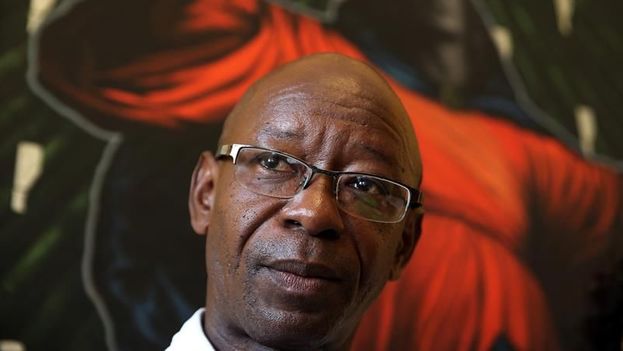
![]() EFE / Via 14ymedio, Havana, 30 October 2017 — The process of nominating candidates for the municipal elections to be held in Cuba on November 26 ended on Thursday without any of the independent applicants associated with the citizen platform #Otro18 (Another 2018) having been nominated, according to Manuel Cuesta Morúa, the platform’s spokesperson.
EFE / Via 14ymedio, Havana, 30 October 2017 — The process of nominating candidates for the municipal elections to be held in Cuba on November 26 ended on Thursday without any of the independent applicants associated with the citizen platform #Otro18 (Another 2018) having been nominated, according to Manuel Cuesta Morúa, the platform’s spokesperson.
More than 170 candidates associated with #Otro18 ran independently, although only 53 made their names known in public lists and none have been nominated as candidates for the upcoming municipal elections, which are the starting signal for the electoral process that will culminate with Raúl Castro’s handing over the presidency of the country in February of 2018.
“Some were arrested so that they would not be able to attend the nominating assemblies where they were going to run, in the case of others the municipal authorities did not inform them about the day of the assembly so they would not show up, and not even their closest neighbors were informed to ensure [[the would-be candidates] would not find out in other ways,” said the dissident Cuesta Morúa.
He also denounced that the police appeared in some nomination assemblies to coerce the people casting their votes and that in the municipality of Aguada, in the province of Cienfuegos, the authorities “stole” the vote since the neighbors nominated the independent candidate Michel Piñero, but his name was changed in the final list.
In addition, five of those 53 candidates have been tried for “prefabricated” crimes to prevent them from standing for election, as happened in the municipality of Perico (Matanzas) to Armando Abascal, prosecuted for “instigation to commit a crime,” said Cuesta Morúa.
According to Cuesta Morúa, the only thing Abascal did was to address the local authorities, at the request of his neighbors, to request the restoration of water and electricity services following the passage of Hurricane Irma, without making any political demands.
Despite the fact that none of the independent candidates was confirmed, Cuesta Morúa was satisfied because, according to him, one of the objectives of #Otro18 has been met, which was to demonstrate that independent voices have popular support.
“We have acted with the law and respecting the law, it has been the Cuban authorities who have violated the laws to prevent other voices from entering the political contest,” he said.
The Cuban electoral law only allows people not linked to the Communist Party of Cubato run at the municipal level, and they must run independently since other political parties are illegal.
Municipal elections were scheduled for October 22, but were postponed after the passage of Hurricane Irma and the deadline was extended to hold nominating assemblies of candidates for delegates (councilors), which take place by an open show of hands in each constituency.
Once these assemblies have been concluded, the biographies and photos of the candidates for delegates to the Municipal Assemblies of the People’s Power will be published as of November 1 so that their constituents will know them; these posted biographies are prepared by the Electoral Commissions, not the candidates themselves or their supporters, and are the only “campaign activity” legally allowed.
On November 26, Cubans will elect the municipal delegates for a period of two and a half years, with a second round on December 3 in those districts in which none of the candidates get more than 50% of the votes.
Most of the candidates for the provincial elections and the general elections will be chosen from these elections, on a date not yet announced, and in the latter elections the deputies of the National Assembly will be elected, with a mandate of five years. The National Assembly formally ratifies the choice for president of the country.
President Raúl Castro has reiterated that he will retire from office in February 2018, and although there have been no official announcements, it is foreseeable that his successor will be the current first vice president, Miguel Díaz-Canel.
